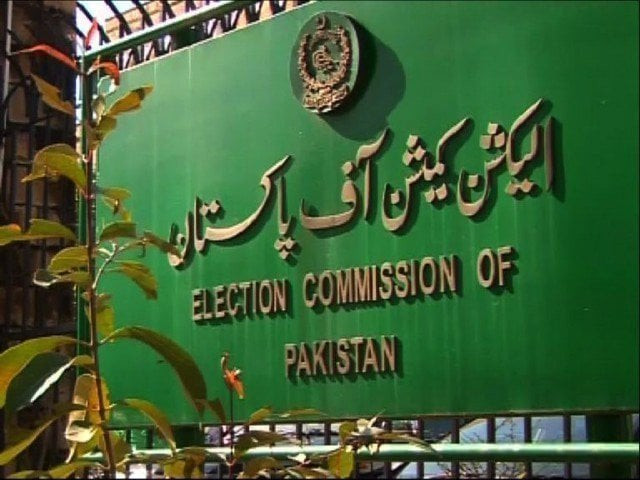ECP okays massive bureaucratic reshuffle in provinces
Poll body bans use of pictures of ‘irrelevant personalities’ on election banners, posters

PHOTO: FILE
These postings have been carried out ahead of the next month’s elections in an attempt to eliminate the chances of these officials exerting any influence in favour of or against any candidate or party.
Imran Khan’s Pakistan Tehrik-e-Insaf (PTI) had highlighted its concerns in several letters sent to the ECP.
ECP swarmed by politics, politicians
As many as 35 deputy commissioners, MDs, DGs and 77 SSPs, AIGs and SPs posted by the previous PML-N government have been transferred in Punjab.
The ECP accorded approval to 18 police officers surrendered from the Punjab police to the federal government in addition to approving the repatriation of 28 officers to federal government from Punjab.
Transfers of 34 provincial secretaries and MDs, and around 64 police officers within Punjab have also been approved.
The ECP also okayed transfers and postings of three secretaries, six commissioners, 33 deputy commissioners and various SDPOs in Balochistan.
In Sindh, it approved transfers and postings of 14 secretaries, two AIGs, six commissioners, 33 deputy commissioners, 14 DIGs and various SSPs.
The ECP is yet to receive lists of bureaucrats from Khyber-Pakhtunkhwa and the federal government for transfers and postings. These transfers and posting are highly likely to be finalised once the ECP receives the lists by Thursday (today).
The commission had imposed a ban on postings and transfers after the announcement of the election schedule. All such cases now have to be routed through the ECP for approval.
Pictures of ‘irrelevant personalities’
The election authorities strictly barred candidates from using pictures of the army chief, the chief justice of Pakistan and other such personalities having no link with the polls.
Taking notice of the reports about posters of candidates with pictures of the army chief and the CJP, the ECP warned against violation of the code of conduct.
“The ECP has fixed the size of posters and banners. Furthermore, use of pictures of ‘irrelevant personalities’ on banners is banned,” reads an official handout issued by the ECP on Wednesday.
It, however, did not specifically mention whom the commission considered ‘irrelevant personalities’.
Media's access to age data a security threat: ECP
Using pictures of supporters and notable personalities on banners and posters is a common practice all over the country.
“We warn all political parties and candidates to follow the code of conduct in letter and spirit. We have passed directions to monitoring teams to take action against violators. No leniency will be observed in future in this regard,” says the ECP handout.
According to the ECP’s code of conduct, the use of hoardings, billboards and wall chalking is also not allowed.
The ECP-prescribed sizes of campaign material are as follows: posters 2 feet x 3 feet; handbills, pamphlets and leaflets 9 inches x 6 inches; banners 3 feet x 9 feet; and portraits 2 feet x 3 feet.
These limits are hardly followed by prospective election candidates.
Candidates are also required to print names and addresses of printers and publishers on their posters and portraits. Most candidates also violate this condition.
The ECP has also formed monitoring teams to check violation of its code of conduct. It nominated most deputy commissioners as heads of such teams in districts, providing them with government servants from various departments for monitoring the election campaigns.





1724319076-0/Untitled-design-(5)1724319076-0-208x130.webp)













COMMENTS
Comments are moderated and generally will be posted if they are on-topic and not abusive.
For more information, please see our Comments FAQ